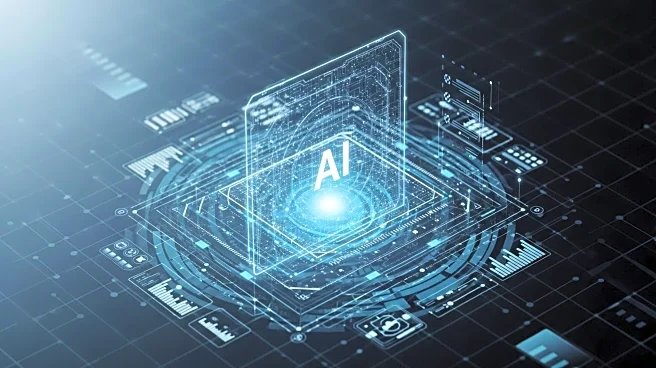What's Happening?
Zendesk has unveiled a new suite of AI-driven products designed to significantly reduce the need for human intervention in customer support. The centerpiece of this initiative is an autonomous support agent capable of resolving 80% of support issues independently. This system is complemented by a co-pilot agent to assist human technicians with the remaining 20% of issues, along with an admin-layer agent, a voice-based agent, and an analytics agent. According to Shashi Upadhyay, Zendesk's President of Product, Engineering, and AI, this development marks a shift in the support industry towards AI handling tasks traditionally managed by humans. The new system has been tested with existing customers, showing promising results with increased consumer satisfaction.
Why It's Important?
The introduction of AI agents by Zendesk could have significant implications for the customer service industry. With the potential to automate a large portion of support tasks, companies could reduce operational costs and improve efficiency. This shift may lead to a decrease in demand for human customer service representatives, impacting employment in the sector. However, it also presents opportunities for businesses to enhance customer satisfaction and streamline operations. As Zendesk's Resolution Platform supports nearly 20,000 customers and resolves 4.6 billion tickets annually, the successful implementation of AI could set a precedent for widespread adoption across the industry.
What's Next?
If Zendesk's AI initiative proves successful, it could prompt other companies to adopt similar technologies, accelerating the transition towards AI-driven customer support. This could lead to further innovations in AI capabilities and integration within various business processes. Stakeholders, including businesses and employees, will need to adapt to these changes, potentially reshaping the landscape of customer service. Additionally, regulatory bodies may need to consider new guidelines to address the ethical and operational implications of increased AI use in the workforce.
Beyond the Headlines
The move towards AI-driven customer support raises questions about the future role of human workers in the industry. While AI can handle routine tasks, complex problem-solving and empathetic customer interactions may still require human involvement. This transition could lead to a redefinition of job roles, with a focus on higher-level skills and oversight of AI systems. Furthermore, the ethical considerations of AI decision-making and data privacy will need to be addressed as these technologies become more prevalent.









